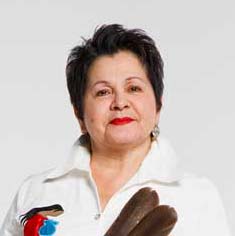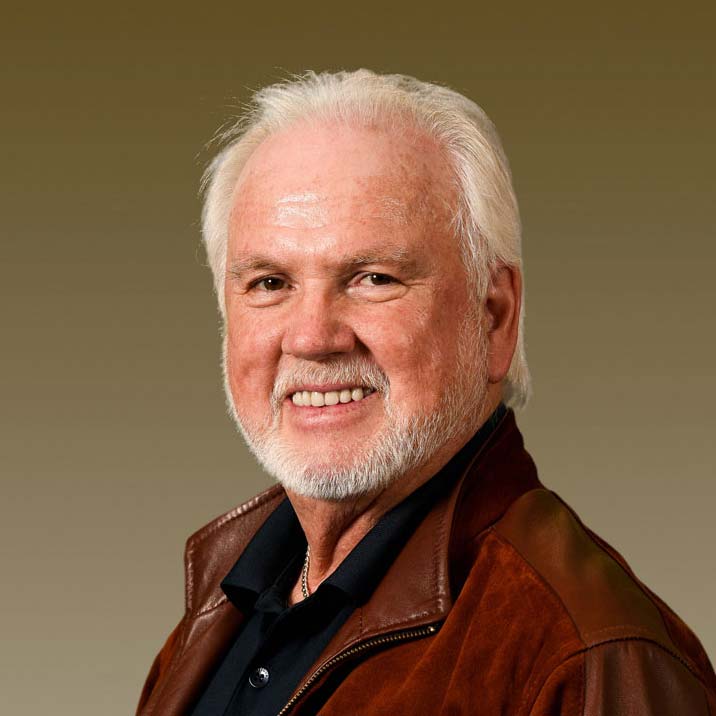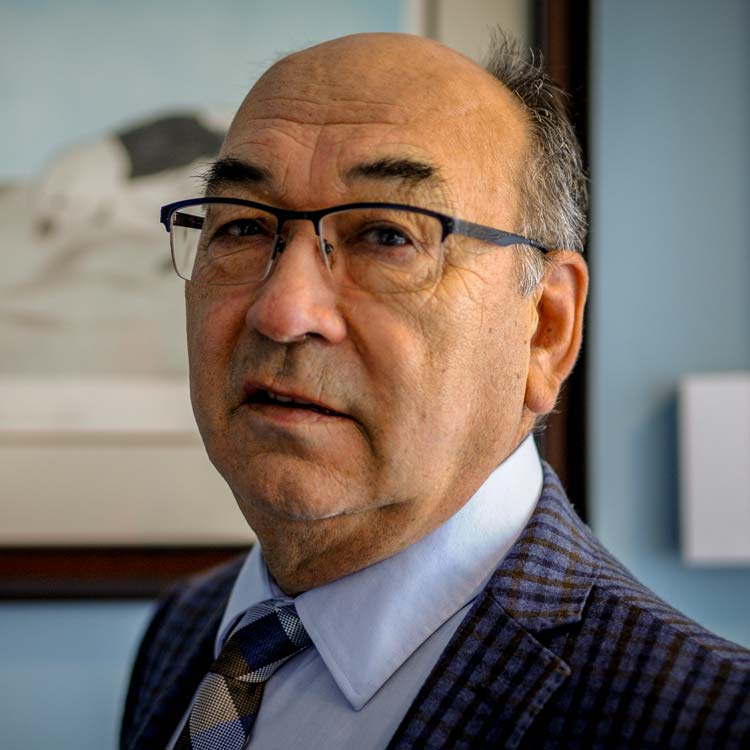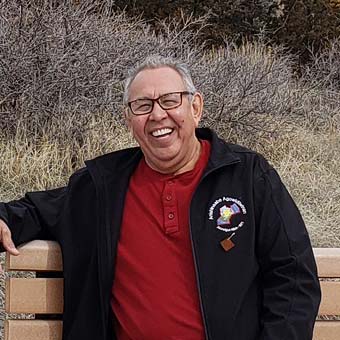Your well-being is important to us. If you require immediate support, please contact Hope for Wellness Help Line at 1-855-242-3310 to access toll-free, 24/7 counselling and crisis intervention. These culturally-competent services are available in Cree, Inuktitut, Ojibway, French and English.
Indian Day Schools
Students attended
McLean Legacy Fund
The Legacy Fund
Canada’s steps toward addressing the intergenerational impacts of colonization and racism against Indigenous peoples — in other words, reconciliation — are just beginning, but some landmark settlements have been reached.
In 2009, Indian Day Schools Survivors began legal action against the Federal Government, seeking compensation for abuse and other damage from forced attendance at Indian Day Schools. In 2019, they entered into a $1.47B settlement, with $200 Million earmarked for the MDSSC and its Legacy Fund for Survivors, their children, and grandchildren. MDSSC’s unique cross-Canada engagement sessions aim to obtain input for the Legacy Fund’s implementation and administration from approximately 120,000 people.
The voices of Day School Survivors must remain central through this process — this is the commitment of MDSSC’s Board, as it is also their hope that MDSSC and the Legacy Fund will create enduring outcomes of the McLean Federal Indian Day Schools Class Action settlement and will be a major source of support for Survivors and their families.
LEGACY FUND ENGAGEMENT PROCESS
The McLean Day Schools Settlement Corporation (MDSSC) will support Federal Indian Day School Survivors and their families through the $200M MDSSC Legacy Fund which will help fund projects that support language & culture, healing & wellness, commemoration, and truth telling. The MDSSC Legacy Fund Outreach Process is a way for Survivors and their families to give us input directly to help guide the implementation of the Legacy Fund and ensure it is responsive to their needs.
The MDSSC Legacy Fund Outreach Process is now complete. We sincerely thank all the Federal Indian Day School Survivors and their family members who participated. Your feedback is invaluable, and will help guide the direction of the MDSSC Legacy Fund, ensuring it serves as a key source of support for Survivors, their children and grandchildren.
Meet Our Board Members
The McLean Day Schools Settlement Corporation Legacy Fund is administered by a Board who are Day School Survivors and experts. The Board currently has three members and is planning to expand to seven members.
The current members are:

Photo Credit: Indspire
Elder Claudette Commanda

Chief Roger Augustine

James “Jim” Igloliorte
“I know you may not know some of the damages that have happened, and for me, I forgive you for that, because for me without forgiveness things stay the same.”
— Garry McLean, Lead plaintiff in Indian Day School class action lawsuit
Garry McLean
The Legacy Fund derives its name from Garry McLean. Elder McLean was a member of the Lake Manitoba First Nation and represented approximately 200,000 Survivors as the lead plaintiff in the MDSSC case. Although he passed away weeks before the establishment of MDSSC, the settlement which bears his name is infused with his spirit.
Elder McLean was a band councillor, social worker, and civil servant. He was a fierce advocate for Indian Day School Survivors, as well as their families. The work of Garry McLean embodies strength, service to community, and the importance of justice, and the Legacy Fund seeks to continue this critical work.
About Day Schools
Approximately 200,000 Indigenous children were forced to attend federally operated Indian Day Schools, in every province and territory, from the mid-1800s until 2000. An often-overlooked part of Indigenous and Canadian history, Indian Day Schools resulted in the severing of cultural connections, including Indigenous languages, cultural practices, and ways of being, for hundreds of thousands of Indigenous children and families.
Government-sanctioned abuses led to a painful legacy that is still felt today due to the abuse, neglect, and negligible education at these schools.
FAQs
In 2009, Indian Day Schools Survivors began legal action against the Federal Government, seeking compensation for abuse and other damage from forced attendance at Federal Indian Day Schools. In 2019, they agreed to a $1.47 Billion settlement, with a $200 Million Legacy Fund for Survivors, their children and grandchildren. The McLean Day Schools Settlement Corporation (MDSSC) serves as the steward of the Legacy Fund which will support Survivors and their families in the areas of language and culture, healing and wellness, commemoration and truth-telling. Grants from the Legacy Fund will be made based upon a process to be established by the MDSSC Board.
The Legacy Fund was created to support four primary areas: language & culture, healing & wellness, commemoration, and truth-telling. The first step was to get direct input from Survivors, their families, and community stakeholders on how the Legacy Fund should be structured, implemented, and distributed to be responsive to their unique needs.
As part of that process, the MDSSC Board held virtual, town hall-style engagement sessions in Fall 2021 and early winter 2022 to respectfully consult Survivors and their families, as well as an online survey for those who could not attend an engagement session. The engagement process has now ended and the MDSSC Board is reviewing the feedback provided to determine the process for Survivors and their families to access the Legacy Fund.
The MDSSC Board has been hard at work developing the foundational steps to establish the administration of the Legacy Fund, from setting up the corporation to ensuring the proper financial and insurance supports are in place. Despite major disruptions from the COVID-19 pandemic, swift steps were taken to name the CEO, to decide on investment strategies to preserve the Fund, and to deliver virtual and online outreach engagement sessions for the Legacy Fund.
An engagement process was launched in Fall 2021 and the MDSSC Board held regional and four national engagement sessions and heard from many more Survivors and families from these sessions and through an online survey. We had meaningful discussions and heard from diverse perspectives that will help guide the implementation of the Legacy Fund and ensure it is responsive to the needs of Survivors, their families and communities.
In the Fall of 2022, we announced the appointment of four Indigenous Community members to our Advisory Council. The Advisory Council is active in developing the Legacy Fund criteria and assessment process. Once the criteria and assessment process is approved by the Board, the Legacy Fund application process will be launched.
We are carefully reviewing the feedback received to determine the best way forward in administering the Legacy Fund. The MDSSC Board is currently determining the application process and will keep Survivors, families and communities informed. Announcements on the grant application process will be made as decisions are finalized.
MDSSC is currently managed by CEO Elder Claudette Commanda, who sits on MDSSC’s Board with former AFN Regional Chief Roger Augustine and Dr. James Igloliorte. The MDSCC also includes an Advisory Council of four Indigenous community members: Louise Tekahawáhkwen Mayo, Kevin T. Hart, Bernd Christmas, and Violet Ford.
The Advisory Council has been tasked with the development of guidelines and procedures on the distribution of the $200 Million Legacy Fund. Their recommendations will be reviewed by the MDSSC Board who will have final approval of the guidelines and procedures
No, the MDSSC is not involved in the claims process for the Federal Indian Day School Settlement. If you have questions about your claim, please contact Deloitte Canada, the claims administrator at 1-888-221-2898 or email or visit the website at www.indiandayschoolsclaims.com.
You may also contact Class Counsel for free legal advice at 1-844-539-3815 or email .
Although they came from the same class action lawsuit settlement, the MDSSC and the claims process are separate. This means that MDSSC does not have information about any claim, including its content, status or result, nor are we able to influence the claims process.
The MDSSC’s purpose is to support Survivors and their families, and other initiatives associated with Day Schools, through the Legacy Fund, which will help develop projects to support language and culture, healing and wellness, commemoration, and truth telling.
If you have questions about your claim please contact Deloitte Canada, the claims administrator at 1-888-221-2898 or email or visit the website at www.indiandayschoolsclaims.com.
You may also contact Class Counsel for free legal advice at 1-844-539-3815 or email .
No. Day Schools were schools where Indigenous children were sent during the day, but children remained in their communities and lived with their families. These schools were neither included in the Truth and Reconciliation Commission, nor were they part of the Indian Residential Schools Settlement Agreement of 2006. However, like Residential Schools, many students in Day Schools experienced abuse and had their cultural connections severed, including Indigenous languages, cultural practices, and ways of being.
The MDSSC hosted regional and national virtual engagement sessions in Fall 2021 and early winter 2022. Additionally, anyone who was not able to attend an engagement session could provide their feedback through an online survey. Feedback from these sessions is being used to inform the grant process.
Grants from the Legacy Fund will be made based on a process to be established by the Board of the MDSSC based on what we heard during the engagement process. MDSSC is reviewing the feedback received to determine the best way forward in administering the Legacy Fund.
Your wellbeing is extremely important to us. We know that seeing, hearing, and talking about experiences of Survivors in Federal Indian Day Schools can be very difficult. The Hope for Wellness Crisis Support is available at 1-855-242-3310, 24 hours a day, 7 days a week to offer culturally-safe counselling and crisis intervention in English, French, Cree, Inuktitut, and Ojibway.
Over 200,000 children attended federally-run Day Schools in Canada. Government-sanctioned abuse, neglect, and negligible education at these schools led to a painful legacy that is still felt today. The decision recognized the harms inflicted on Survivors and their family members and announced 1.47 billion dollars as compensation for Survivors. In addition, the decision created a $200 Million fund, the Legacy Fund, to fund projects that support language & culture, healing & wellness, commemoration, and truth-telling.
The voices of Survivors and their families are at the core of the work of the McLean Day Schools Settlement Corporation. MDSSC is committed to continuing to do this work in a good way that is reflective of Survivors and their families and provide resources for projects that will support the healing journey of those impacted by Federal Indian Day Schools.
We launched our engagement process, which is now completed. It was important for the MDSSC Board to engage in a robust engagement process with Survivors and families to help guide the direction of the Legacy Fund, ensuring it serves as a key source of support for Survivors, their children, and grandchildren. Currently, we are carefully reviewing the feedback received to determine the best way forward in administering the Legacy Fund. We are also receiving recommendations from our Advisory Council on the criteria and assessment process for the legacy fund.
We know Survivors and their families are eager to access the Legacy Fund and we want to ensure we take the time to build a process for the grant application process that reflects what we heard from Survivors.
The McLean Day Schools Settlement Corporation (MDSSC) was established as part of the historic McLean Federal Indian Day Schools Class Action settlement, which endowed MDSSC with a $200 Million Legacy Fund for projects to support Survivors of federally-operated Indian Day Schools, and their families. MDSSC is currently managed by CEO Elder Claudette Commanda, who sits on MDSSC’s Board with AFN Regional Chief Roger Augustine and Dr. James Igloliorte. Read more about MDSSC’s Board here and about the Legacy Fund here.
Although they came from the same nationwide class action lawsuit settlement started by its lead plaintiff, Elder Garry McLean, MDSSC and the claims process (which is handled by Deloitte Canada) are separate. This means that MDSSC does not have information about any claim, including its content, status, or result, nor are we able to influence the claims process.
Our aim is to support Survivors and their families, and other initiatives associated with Day Schools, through the Legacy Fund, which will help develop projects to support language & culture, healing & wellness, commemoration, and truth telling.
No. Day Schools were schools where Indigenous children were sent during the day, but remained in their communities and lived with their families. These schools were neither included in the Truth and Reconciliation Commission, nor were they part of the Indian Residential Schools Settlement Agreement of 2006. However, like Residential Schools, many students in Day Schools experienced abuse and had their cultural connections severed, including Indigenous languages, cultural practices, and ways of being.
Long after the compensation (i.e. claims) process is completed, our hope is that MDSSC and the Legacy Fund will create enduring outcomes of the McLean Federal Indian Day Schools Class Action settlement and will be a major source of support for Survivors and their families. We want the Legacy Fund to be as responsive as possible, truly meeting the needs and expectations of Survivors and their families, so we appreciate any input from those individuals, as well as their families.
We are reachable by email.
We are happy to answer any questions or concerns you may have regarding our operations, the Legacy Fund, and the outreach work we are currently engaging in.
Since Fall 2019, we have been hard at work developing the fundamental steps to establish MDSSC and the administration of the Legacy Fund, from setting up the corporation, to ensuring we had the proper financial and insurance supports in place. Despite major disruptions that resulted from the COVID-19 pandemic, we took swift steps to name our initial Board members and CEO, and to decide on investment strategies to preserve the Fund. This year, we have worked diligently to put together a framework for our outreach plan, ensuring that it is supportive, safe, and inclusive and are proud to announce that we will begin our outreach campaign soon!
